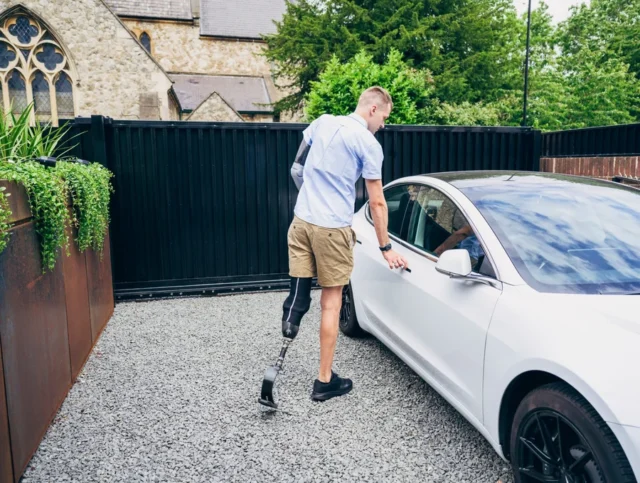Driving with Parkinson’s
Parkinson’s disease is a progressive disorder of the nervous system that primarily affects movement, cognitive functions and mood regulation. Changes brought about by this condition can significantly influence an individual’s ability to safely operate a vehicle.
The challenges ahead
Motor symptoms of Parkinson’s, such as tremors, rigidity and slowness of movement, can manifest themselves while driving, posing potential challenges. Non-motor symptoms, which include cognitive difficulties, sleep disorders and mood changes, have the capacity to affect driving performance too.
It should also be noted that medications used to manage Parkinson’s disease may cause side effects such as drowsiness or confusion, which could impair one’s ability to drive.
While Parkinson’s disease doesn’t always result in an immediate end to driving, it’s essential to recognise the ways it can impact one’s driving ability. Early detection and the correct steps can ensure safety while preserving independence for as long as possible.
Parkinson’s impact on driving skills
Some individuals with Parkinson’s disease may begin to notice changes in their driving abilities, such as difficulty steering or turning.
Problems may also arise in accurately judging distances and speed, leading to close calls or actual accidents.
Navigation of familiar routes may also become a struggle, while slow reaction times may become evident. If these symptoms emerge, it’s crucial to take the necessary steps to evaluate the situation and consider the potential risks involved.
Consulting healthcare professionals
When these signs start to appear, it’s vital to consult healthcare professionals such as neurologists, occupational therapists or driving assessment specialists. These professionals can provide guidance on whether it’s safe to continue driving. They conduct comprehensive assessments evaluating both motor and cognitive abilities, in turn advising on potential risks. As Parkinson’s is a progressive condition , driving abilities may change over time, requiring regular assessments.
Meeting legal obligations
Under UK law, people diagnosed with Parkinson’s disease are required to inform the DVLA (DVA in Northern Ireland) about their condition. Failure to do so can result in fines and potential prosecution.
Informing the DVLA or DVA is not a step towards disqualification from driving, rather it is a safety measure to ensure that necessary adaptations or restrictions are put in place. Upon notification, they may require a driving assessment or medical examination before deciding on issuing or renewing a licence.
Adapting to changes
If healthcare professionals determine that driving is still feasible, some adaptations to the vehicle or changes in driving habits might be necessary. For instance, using an automatic car might be advised if Parkinson’s affects one side more than the other.
Driving only during daylight hours might be suggested if night vision is impaired, while sticking to familiar routes could be a safer option if navigation has become difficult. These adjustments aim to ensure safety on the roads while enabling the individual to maintain some level of independence.
Recognising when to stop driving
There may come a time when it is no longer safe for a person with Parkinson’s disease to continue driving. This decision, while difficult and emotionally challenging, is crucial to ensure the safety of the individual and others on the road. Fortunately, there are alternatives to driving available such as public transport, taxis, community transport schemes or arranging lifts with family or friends.
Conclusion
Receiving a diagnosis of Parkinson’s disease does not signal an immediate end to driving. However, it calls for proactive management involving medical professionals, continuous monitoring of changes in abilities, adherence to legal obligations and readiness to make necessary adaptations. Deciding to stop driving when necessary, while challenging, prioritises safety over independence. With appropriate management and support, individuals can continue to live fulfilling lives.
More like this

Accessible travel
The Best Cars Currently Available On The Motability Scheme
The Motability Scheme is fantastic for disabled people, providing them with the opportunity to lease a brand-new car using their qualifying Mobility Allowance. With so many…

Accessible travel
The Future of Electric WAVs: Overcoming Challenges & Embracing Accessibility
Discover the challenges of Electric Wheelchair Accessible Vehicles (eWAVs) and how our innovative adaptations are paving the way for accessible EVs today. Explore our insights into…

Driving with adaptations
Cost-Effective and Reliable Driving Aids for Amputees: Our Recommendations
Life after limb loss and amputation doesn’t have to mean the end of driving. Although it can affect your mobility and driving ability, there are a…